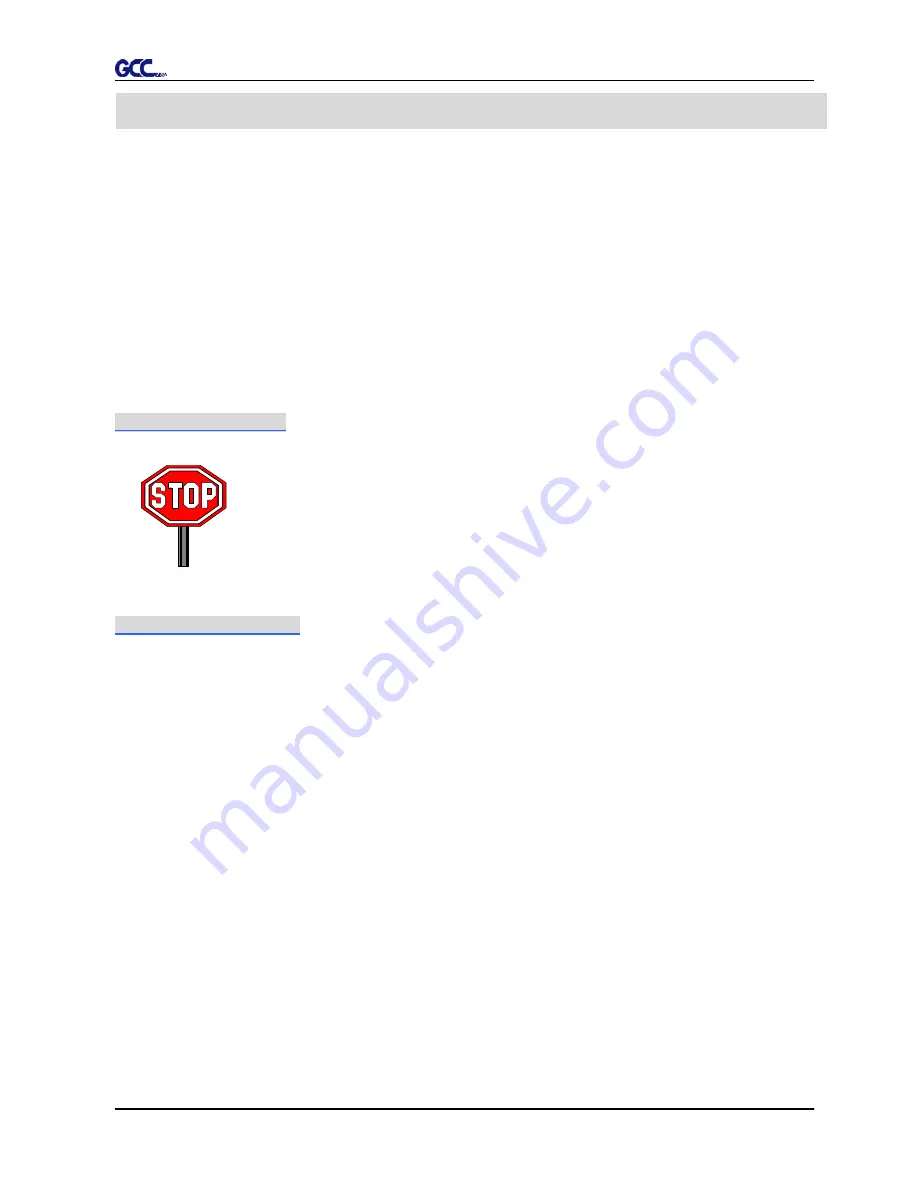
Bengal User Manual
Basic Maintenance
4-1
4. Basic Maintenance
This chapter explains the basic maintenance (i.e. cleaning the cutting plotter) required
for the cutting plotter. Except for the steps mentioned below, all the other
maintenances must be performed by a qualified service technician.
4.1 Cleaning the cutting plotter
In order to keep the cutting plotter under good conditions and have the best performance, you need to
clean the machine properly and regularly.
Precaution in Cleaning
Unplug the cutting plotter before cleaning.
Never use
solvents, abrasive cleaners or strong
detergents
for cleaning. They may damage the surface of
the cutting plotter and the moving parts.
Recommended Methods
Gently wipe the cutting plotter surface with a lint-free cloth. If necessary, clean it with a
water-rinsed or an alcohol-rinsed cloth. Wipe the cutting plotter to remove any residues on
the cutting plotter. Finally absorb water with a soft, lint-free cloth.
Wipe all the dust and dirt from the tool carriage rail.
Use a vacuum cleaner to clean any accumulated dirt and media residue beneath the pinch roller
housing.
Clean the platen, paper sensors and the pinch rollers with a water-rinsed cloth or alcohol-rinsed
cloth. Finally absorb water with a soft, lint-free cloth.
Use the same method mentioned above to clean dust and dirt from the stand.
4.2 Cleaning the Grid Drum
Turn off the cutting plotter, and move the tool carriage away from the area needed to be cleaned.
Raise the pinch rollers and move them away from the grid drum for cleaning.
Use a bristle (a toothbrush is also acceptable) to remove dust from the drum surface. It needs to
rotate the drum manually to clean the drum completely (Figure 5-1).



























